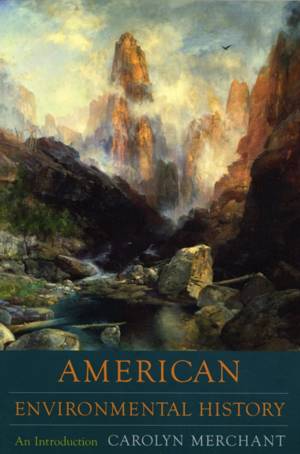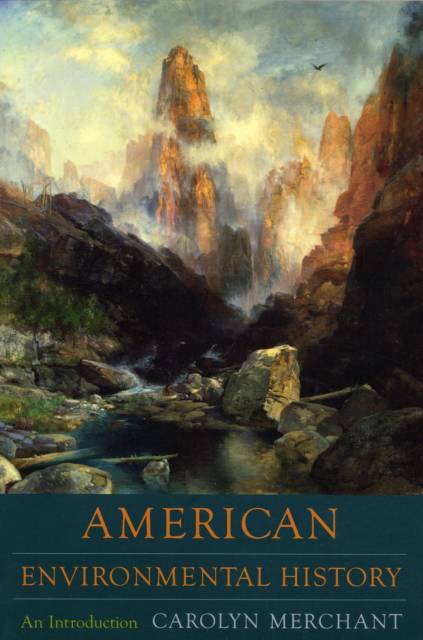
- Afhalen na 1 uur in een winkel met voorraad
- Gratis thuislevering in België vanaf € 30
- Ruim aanbod met 7 miljoen producten
- Afhalen na 1 uur in een winkel met voorraad
- Gratis thuislevering in België vanaf € 30
- Ruim aanbod met 7 miljoen producten
Zoeken
Omschrijving
By studying the many ways diverse peoples have changed, shaped, and conserved the natural world over time, environmental historians provide insight into humanity's unique relationship with nature and, more importantly, are better able to understand the origins of our current environmental crisis. Beginning with the precolonial land-use practice of Native Americans and concluding with our twenty-first century concerns over our global ecological crisis, American Environmental History addresses contentious issues such as the preservation of the wilderness, the expulsion of native peoples from national parks, and population growth, and considers the formative forces of gender, race, and class. Entries address a range of topics, from the impact of rice cultivation, slavery, and the growth of the automobile suburb to the effects of the Russian sea otter trade, Columbia River salmon fisheries, the environmental justice movement, and globalization. This illustrated reference is an essential companion for students interested in the ongoing transformation of the American landscape and the conflicts over its resources and conservation. It makes rich use of the tools and resources (climatic and geological data, court records, archaeological digs, and the writings of naturalists) that environmental historians rely on to conduct their research. The volume also includes a compendium of significant people, concepts, events, agencies, and legislation, and an extensive bibliography of critical films, books, and Web sites.
Specificaties
Betrokkenen
- Auteur(s):
- Uitgeverij:
Inhoud
- Aantal bladzijden:
- 504
- Taal:
- Engels
- Reeks:
Eigenschappen
- Productcode (EAN):
- 9780231140355
- Verschijningsdatum:
- 31/10/2007
- Uitvoering:
- Paperback
- Formaat:
- Trade paperback (VS)
- Afmetingen:
- 156 mm x 237 mm
- Gewicht:
- 712 g

Alleen bij Standaard Boekhandel
+ 128 punten op je klantenkaart van Standaard Boekhandel
Beoordelingen
We publiceren alleen reviews die voldoen aan de voorwaarden voor reviews. Bekijk onze voorwaarden voor reviews.











